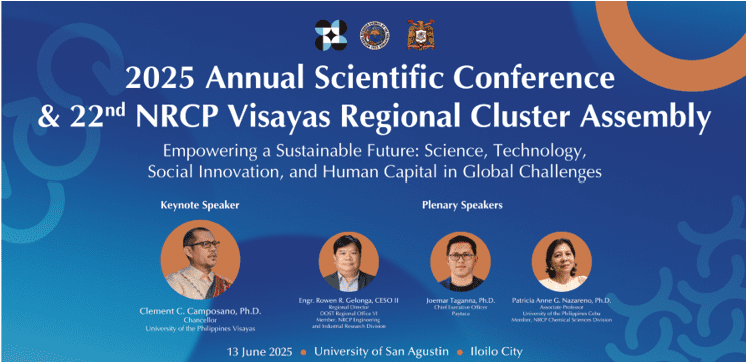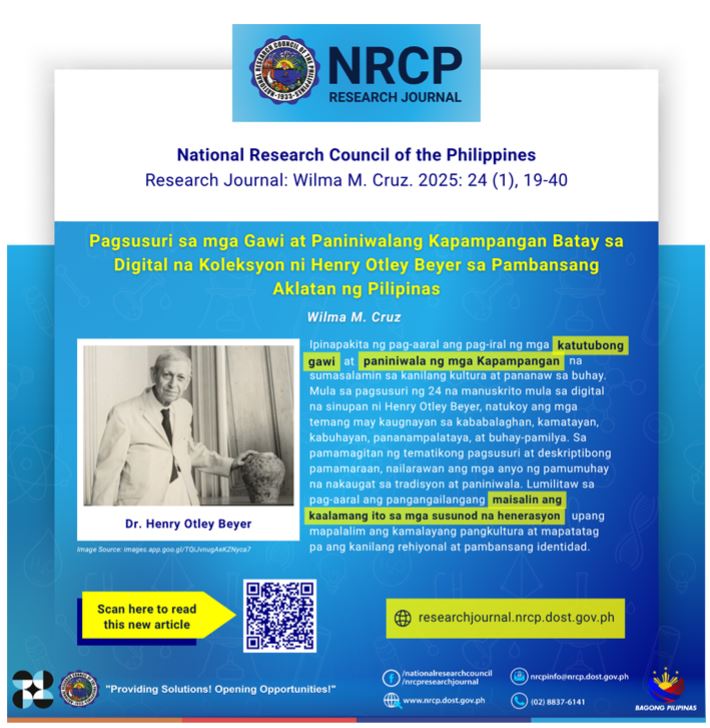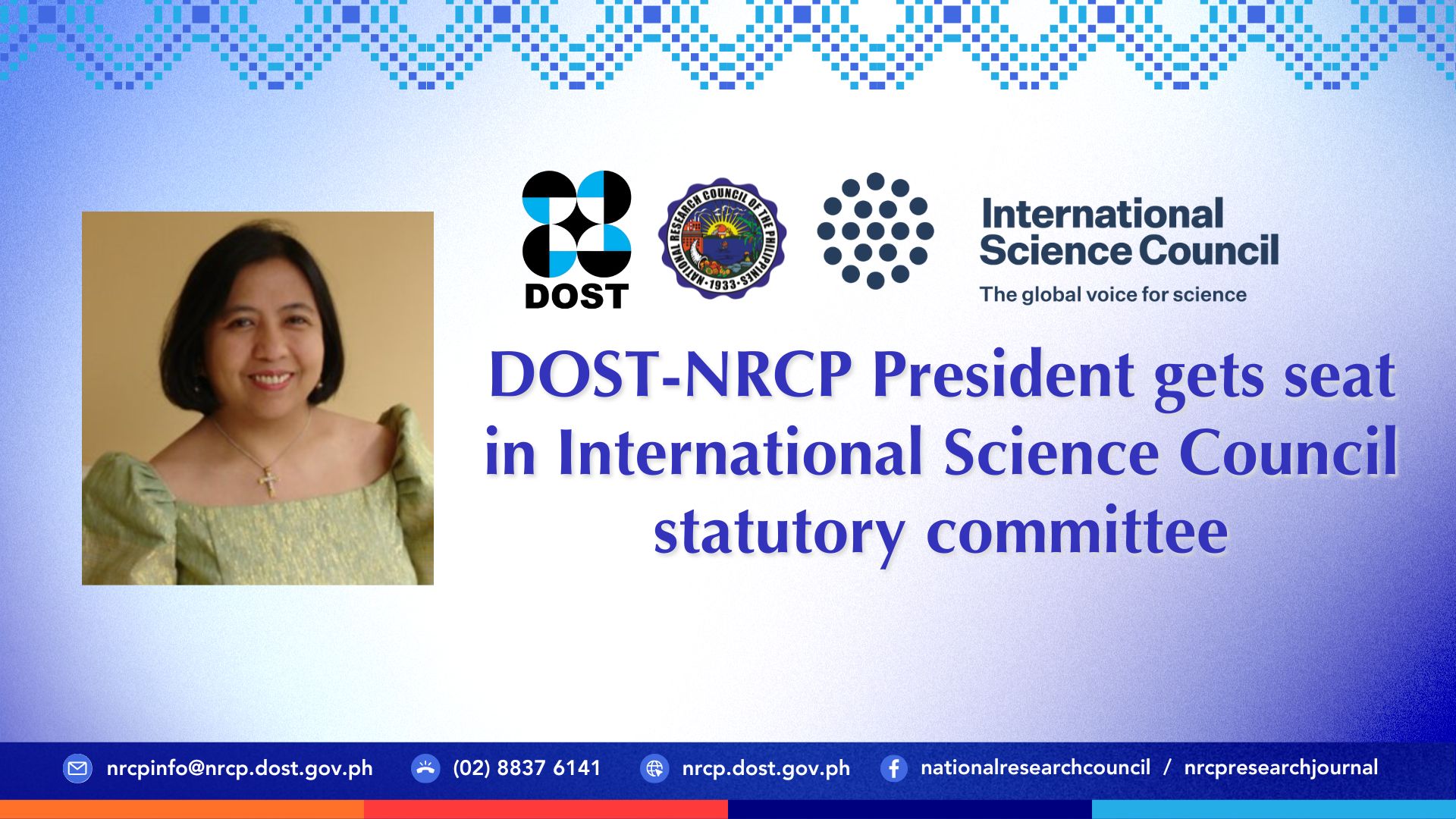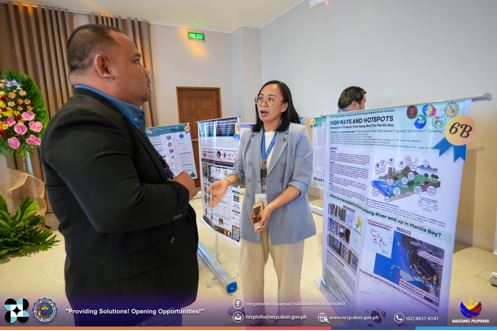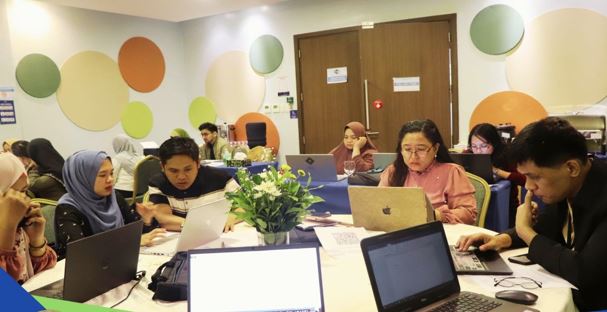UPLB’s “Spiderwoman” now leads NRCP’s over 6,000 researchers
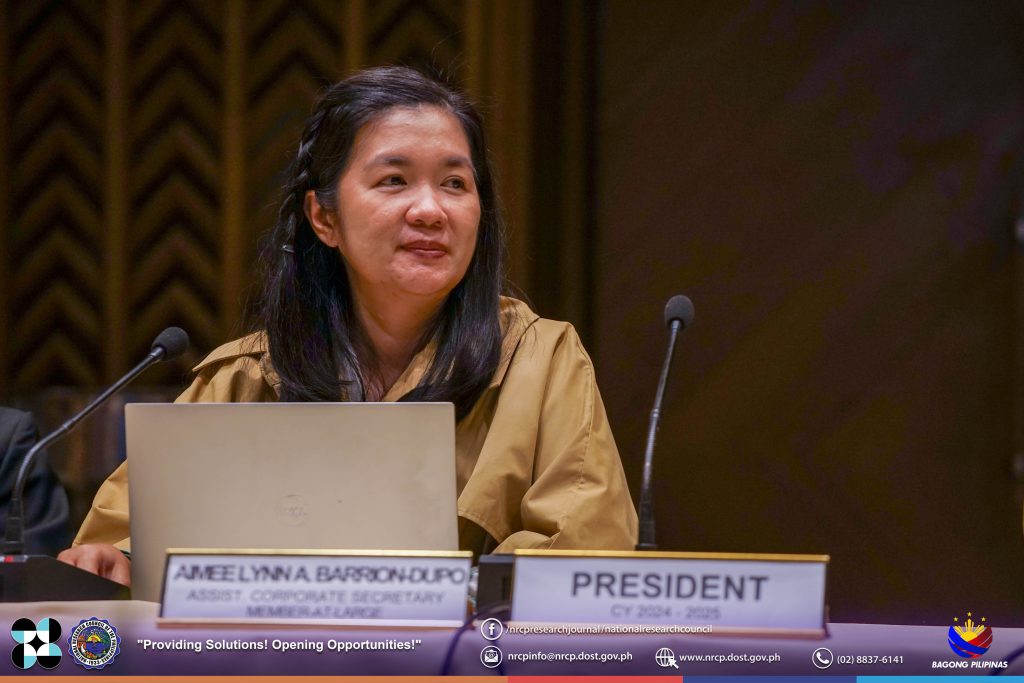
Dr. Aimee Lynn A. Barrion-Dupo (aka “Spiderwoman”), a renowned expert on spiders, was recently elected as the new President of the National Research Council of the Philippines (DOST-NRCP).
Barrion-Dupo who will lead the NRCP Governing Board until 31 March 2025 is the 33rd President and the 7th female, so far, in the council’s nine-decade history.
“Just as a spiderweb relies on the strength of each component, the NRCP’s success hinges on the synergy between its functions … [ensuring] the continuous flow of knowledge, resources, and expertise towards a vibrant and dynamic Philippine research landscape,” said Dr. Barrion-Dupo.
Barrion-Dupo is expected bring a wealth of experience to the NRCP’s top brass because as an administrator, she is known to have instituted changes for the welfare of faculty across University of the Philippines (UP) constituent universities, having served as Faculty Regent of the UP System during the peak of the Covid pandemic in 2021 – 2022.
As an academic, she is described by her peers as a “passionate scientist and educator” and well-regarded for leading the enhancement of research and instruction in the biological sciences, particularly for revitalizing course programs and instruction materials, and pushing for more practical and effective evaluation schemes in her institutions.
As a researcher, she led in the discovery of over 52 species of spiders, 22 species of rice black bugs, and one moth species, and has published a total of 57 refereed papers and 2 book chapters. As an advocate of science communication her efforts center mainly on arthropod diversity and conservation, using social media platforms like Facebook and Instagram to educate people on various critter’s roles in the ecosystem.
Barrion-Dupo articulated her vision for the NRCP in this way: The Council with the spider web’s structure, she described as “resilient.” The “hub” is the NRCP governing board, the Office of the Executive Director, along with the three NRCP Office Divisions—each must work together and provide coordinated and strategic direction and support for basic research. The “frame threads” are the 13 Academic Divisions of the Council where linking each is critical to national development.
The “sticky spiral” is the Council’s roster of 6,272 members that captures, nurtures, and empowers promising young talents and ideas via sustained capacity building, expert engagement and recognition programs.
Lastly, the web’s “anchor points” symbolize the NRCP’s “unwavering commitment to connecting research with societal needs” whereby strong connections ensure that “research findings are effectively translated into tangible benefits for Filipinos, propelling progress across sectors,” said the new NRCP President.
Barrion-Dupo holds the title of Professor 12 and UP Scientist III at the University of the Philippines Los Baños (UPLB) Institute of Biological Sciences, and concurrently serves as curator for spiders and moths at the UPLB Museum of Natural History. She earned her BS, MS, and PhD in UPLB majoring in entomology and was among the Outstanding Young Scientist (OYS) awardees by the National Academy of Sciences and Technology in 2015.
At the NRCP GB, she served as Assistant Corporate Secretary (2023-2024), Vice Chair of the GB’s Membership Committee (2022-2024), and a member of the GB Committees on Publications and Networking, Linkages, and Outreach. She is now on her fourth and final year at the GB as Member-at-Large and takes over from Dr. Leslie Michelle M. Dalmacio, another prominent academic and biochemist from the University of the Philippines (UP) Manila and former NRCP President (2023-2024).
The NRCP is an attached agency of the DOST and a collegial body of researchers in the Philippines across disciplines, including social sciences and humanities.(George Robert E. Valencia III, S&T Media Service)






